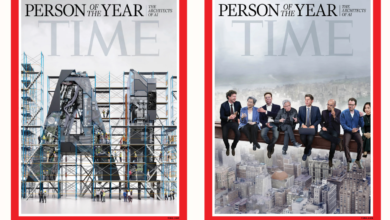The EV Tax Credit Is Gone: What’s Next for Buyers?

▼ Summary
– The $7,500 federal EV tax credit expires on October 1, 2025, which is expected to increase prices and reduce sales of electric vehicles.
– EV sales hit a record high in August 2025, with 146,332 new vehicles sold, accounting for 9.9% of the market, as consumers rushed to take advantage of the expiring credit.
– Automakers face challenges post-credit, as they may need to lower prices or increase incentives despite already losing money on each EV sold.
– The end of credits could lead to fewer EV models available, as manufacturers scale back production and focus more on gasoline and hybrid vehicles.
– Experts predict short-term sales declines but believe the market will adjust, with buyers choosing EVs based on merit rather than subsidies.
The federal electric vehicle tax credit has officially expired, leaving prospective buyers and the automotive industry to navigate a new financial landscape. This long-standing incentive, which provided up to $7,500 for new EV purchases, ended on October 1st, fundamentally altering the cost equation for consumers. The immediate aftermath is expected to include a noticeable dip in sales and an effective price increase for electric models, as the market adjusts to operating without this significant government support.
In the weeks leading up to the credit’s expiration, consumers rushed to dealerships, driving EV sales to a historic peak. August saw a record 146,332 new electric cars sold, representing nearly 10% of all new vehicle sales that month. This buying frenzy occurred even though the average price for an EV remained over $9,000 higher than a comparable gasoline-powered car. The tax credit was instrumental in bridging that price gap, and in some cases, even made electric vehicles the more affordable option after accounting for additional manufacturer incentives.
This pivotal change in policy is not happening in a vacuum. The current administration has taken a firm stance against subsidies for electric cars and renewable energy, creating a challenging environment for the sector’s growth. Industry analysts predict a significant, though not catastrophic, sales decline. One study suggests a potential drop of up to 27%, a figure mirrored by Germany’s experience after it eliminated its own EV incentives.
The disappearance of the tax credit forces a market reset. Automakers can no longer rely on government subsidies to attract buyers and must now compete on the fundamental merits of their electric offerings. This could accelerate the development of more affordable models and compelling technologies. Furthermore, the end of the credit removes a layer of political controversy, potentially allowing EVs to be judged simply as cars, rather than as symbols of a policy debate.
The leasing market, which saw a massive surge due to a loophole in the Inflation Reduction Act, will also undergo a transformation. With the point-of-sale rebate gone, the financial advantage of leasing over buying diminishes. This shift may lead to a more stable used EV market. Recently, a glut of off-lease vehicles has severely depressed resale values, with some models losing more than half their original price in just three years. This created a perception problem, fueling unfounded concerns about battery longevity and overall value.
For automakers, the path forward is fraught with difficulty. Many manufacturers already lose money on each electric vehicle they sell, and absorbing the full $7,500 price difference to maintain sales volumes is not a sustainable option. Some may introduce their own cash-back offers or low-interest financing to cushion the blow. However, the financial pressure is likely to lead to a contraction in available models. Several automakers have already canceled or postponed planned electric vehicles, particularly those imported from overseas that face additional tariff pressures.
The situation presents a stark contrast to the progress made over the past decade. Government support and firm emissions standards were key drivers in bringing EV technology to the forefront. From a niche product with expensive batteries, electric cars grew to achieve a market share that far exceeded early projections. Now, with the reversal of those policies, industry leaders express deep concern about the uncertainty it creates for long-term investment and innovation.
In response, the burden may fall on individual states, especially those with strong climate agendas, to create their own incentives. The goal is not only environmental but also economic; maintaining competitiveness in the global auto industry requires continuous innovation. The expiration of the federal tax credit marks the end of one chapter for electric vehicles in America and the uncertain beginning of another, where their success will depend more than ever on their inherent appeal and value.
(Source: The Verge)





